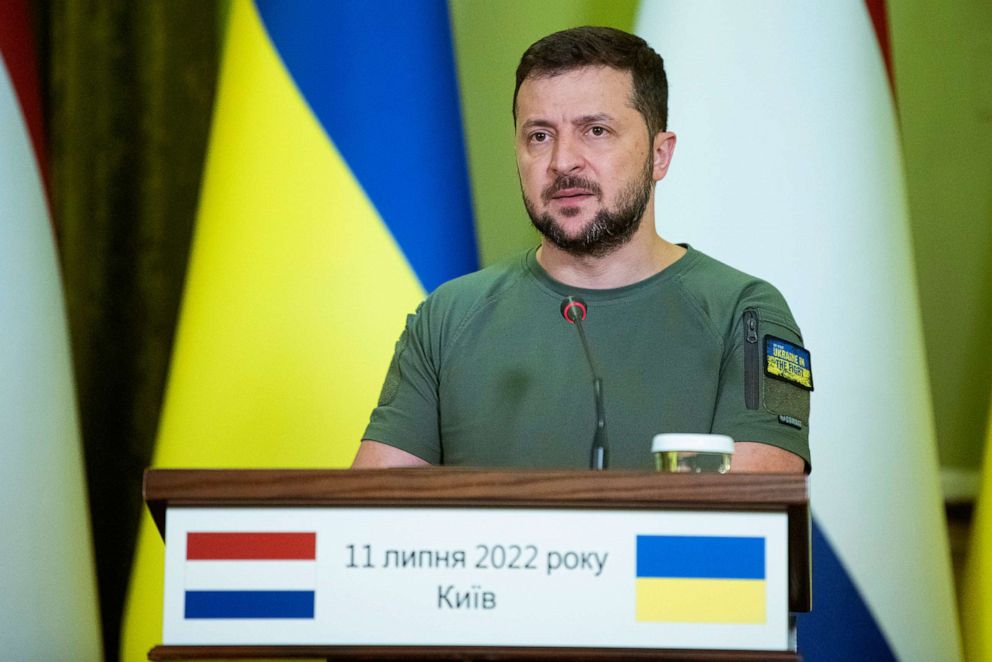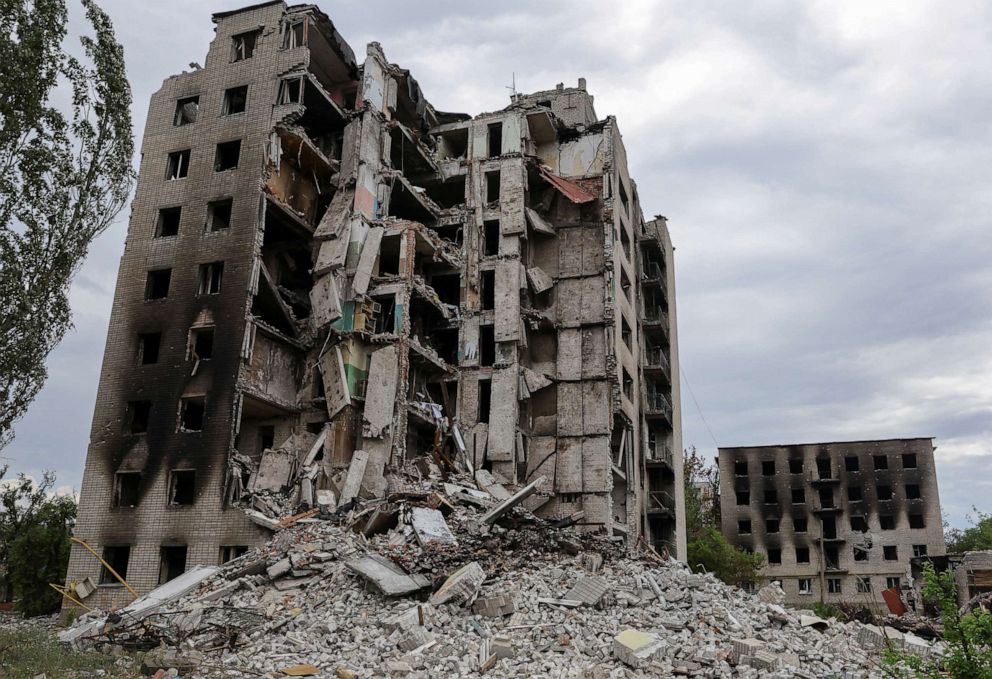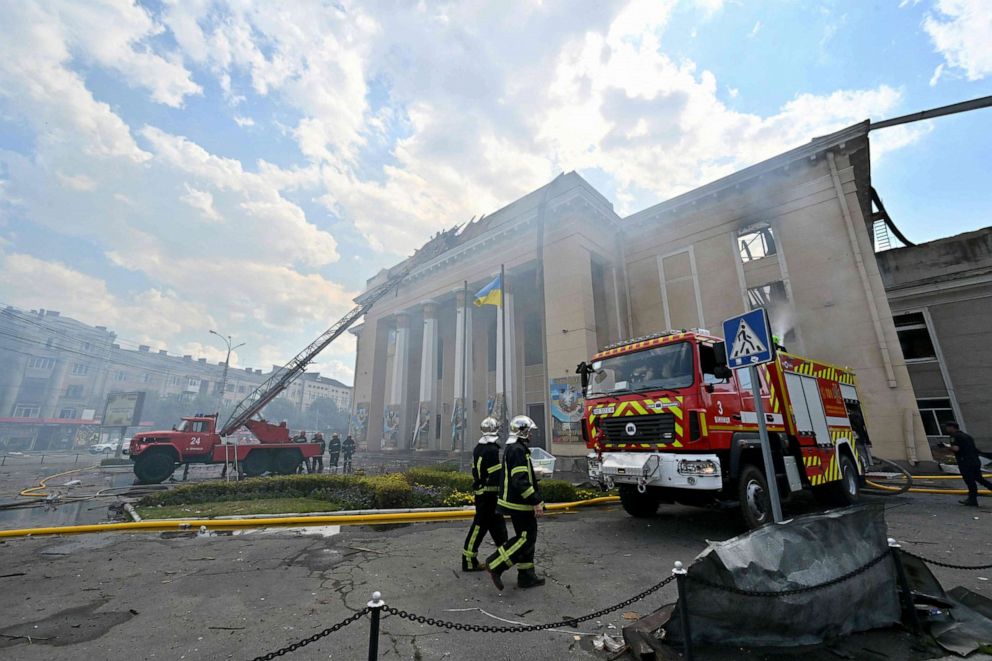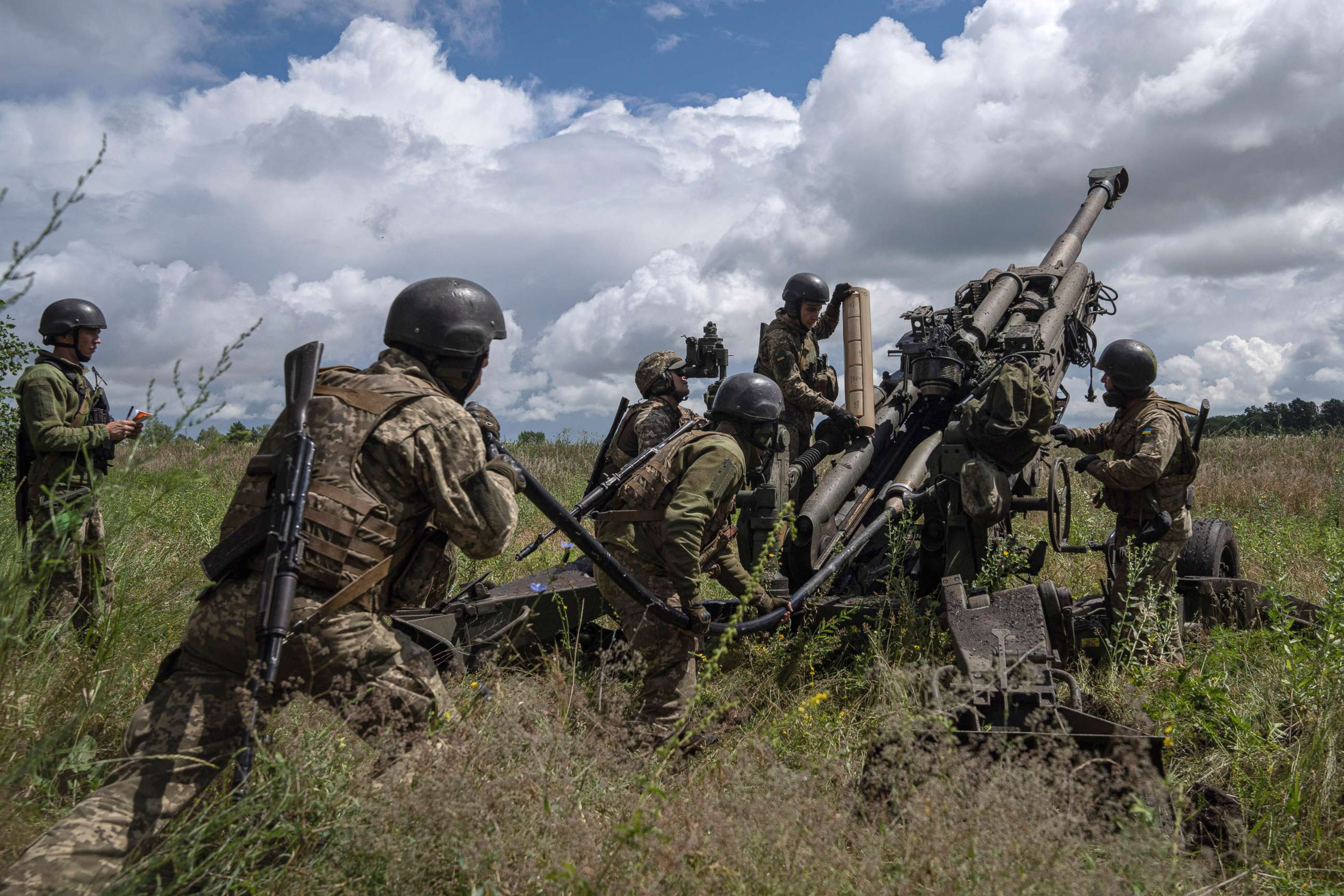No end in sight as Russia's invasion of Ukraine heads into fifth month
ABC News foreign correspondent James Longman provides an update to "Start Here."
As the Russian invasion of Ukraine enters its fifth month, there appears to be no end in sight.
Ukrainian President Volodymyr Zelenskyy said he wouldn't consider signing a peace treaty with Russia due to recent attacks by Russian forces that have led to occupations of large swaths of eastern Ukraine.

ABC News foreign correspondent James Longman has been on the ground in Ukraine covering the war and spent a few months in the contested regions that are at the center of the latest activity.
He spoke Thursday with Brad Mielke, host of ABC News' "Start Here," about the latest developments and how impactful the recent Russian attacks have been on Ukrainian forces.
START HERE: James, what is the state of play right now?
LONGMAN: Well Brad, I think two things really have characterized our time here. The first is that there has been a major Russian victory in this country after months of war. And you'll remember they failed to take Kiev. It's taken them a long time to basically do anything here. But after months, they've taken one of the two provinces of the Donbas, that is Luhansk. So that is significant in many ways, significant strategically. But I think psychologically, you know, symbolically for Russia, finally, they've got something in this war and now they're moving into the next phase, the second half of the Donbas. That's that Donetsk region. And they're on the march and they want to take that, too. So that's been a massive part of what we've seen.

And the other huge thing we've seen a lot more of: this huge uptick in attacks on civilian targets. The Russians seem frustrated at the amount of help, perhaps that Ukraine continues to get [and] their inability to move forward more quickly, perhaps on the ground with their ground assaults. And so, we've seen these massive attacks on civilian neighborhoods.
I was at the one at Kremenyuk, the mall which people may remember was set ablaze. Many dozens of people died there after an anti-ship missile hit it. [At an] apartment block in the south near Odessa, we witnessed another attack there. And only in the last three or four days, another massive attack on an apartment building in Donetsk. Over 40 people were killed in that one attack. So these are the two themes of this war so far we've seen.
But a huge issue at the moment is what they're calling Russification. This is where Russia, in the areas that it's already controlling, seeks to really lay down roots, proper, deep roots that will not be pulled up any time soon. So that if and when there's some kind of negotiation, they can't be moved. So in Kherson, for instance, is a town in the south. It's been occupied since almost the beginning.

We've heard that they're giving out passports, Russian passports. The ruble has been introduced there. They've changed the curriculum to try to integrate these areas into Russia. And that is why Ukraine is saying the time is now to push them out, because if we leave them there too long, they're like a cancer. They're taking over. And if and if they're allowed to stay there until the winter, those routes that they've been putting down, they'll be frozen in and they'll never get their country back. And that's the real problem for Ukraine at the moment.
START HERE: U.S. officials recently announced that Russia will be getting reinforcements from Iran. How significant is that?
LONGMAN: Well, I think this just goes to show how much this has become such a serious proxy war, where basically you have these great competing world orders slugging it out here in Ukraine. On the one side, you have the United States and its allies and on the other, Russia and yes, Iran, and to some extent, China, relatively kind of ambivalent about this war, but certainly not putting a stop to it. Turkey [is] somewhere in the middle, trying to play both sides. But yes, it looks like Russia is looking to its partners to help it militarily because, and there have been rumors about whether or not they're kind of running out of some of the equipment that they've needed.
These huge missiles that they've been firing into Ukraine, it looks like they kind of could be running out of those. And yes, getting these drones, it just shows that Russia is looking elsewhere for some help. Drones have played a huge part in this war, by the way. The U.S. and Turkish drones have been provided to the Ukrainians have been very, very useful to them.

So, I'm not sure how much these drones in particular will make a difference to Russia. But it just goes to show how much this conflict is being internationalized and how many how global the consequences of it really are. I should add yesterday, Brad, there was a bit of a breakthrough when it came to the concerns around grain in this country. Twenty million tons of grain have been stuck in Odessa. And finally, there was a negotiation in Turkey, which looks like some of this could get out. It would perhaps relieve some of the international concerns around food security, particularly for developing nations. But this just goes to show whether it's food security, [or] energy security.
You've got Biden in the Middle East talking about that at the moment. This is such an enormously important war in so many respects for all of us all around the world. And I think these last few weeks have really shown that.
[
]




